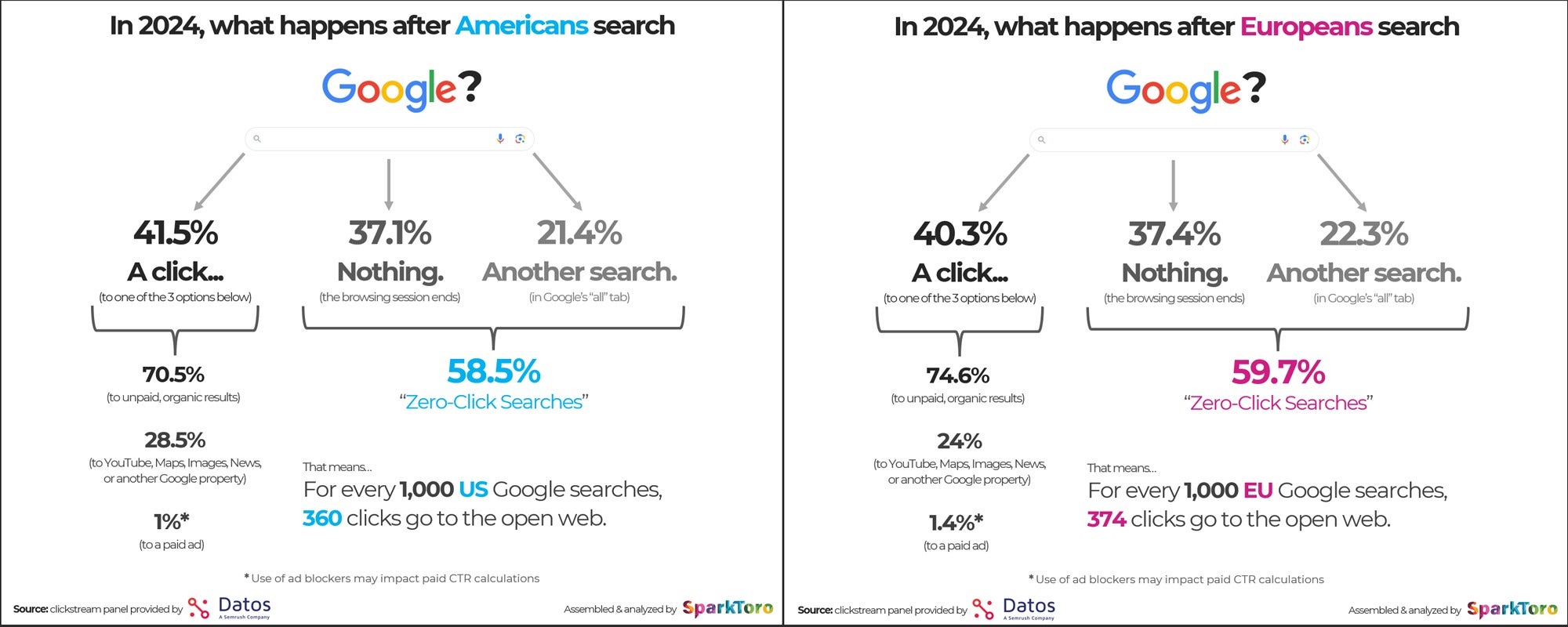Posted on 6/6/2025 in Web Development
By Dean Dorazio
Why do you need to optimize your website for AI?
AI-powered search engines like Google’s AI Overview, Perplexity, and tools such as Microsoft's Co-Pilot and ChatGPT continue to reshape how people find information. Website administrators must evolve their SEO strategies to keep up. According to Search Engine Land, in 2024 almost 60% of Google searches never left the search engine results page (SERP). This percentage is expected to continue to grow underscoring the need for tactics that capture attention within these evolving platforms. Your website must rank in AI search results in order to stay relevant.

AI Overview
To optimize your website for AI, focus on making your content easily accessible, well-structured, and informative, while also leveraging AI tools to enhance your SEO strategy. Specifically, prioritize structured data, keyword research, and content that is easily scannable and helpful. Here is a more detailed breakdown of what’s important:
- Content Structure and Accessibility: Well structured content focused on accessibility will help you have a better chance of ranking. Incorporate the following things to improve your chances.
- Clear headings, subheadings and bullet points to make your content easy to scan.
- Use natural language and write in a way that sounds human and is easy to understand.
- Utilize schema markup like (FAQ, How-to and Product) to help AI understand your content and extract key information.
- Ensure your content is properly formatted with clean HTML or markdown to make it easily accessible to AI crawlers.
- Keyword Research and AI Tools: Use AI-powered tools to help you complete comprehensive keyword research. Identify relevant keywords and phrases to target.
- Content Quality and Authority: Create informative and well-researched content that answers user questions thoroughly. Increase credibility by citing verified sources and experts. Develop content clusters and explore topics in depth to establish your website as an authority.
- AI Overviews and Large Language Models (LLMs):
- Prioritize getting your brand mentioned in reputable publications and Q&A forums to increase brand visibility in AI search.
- Use tools like Otterly, Ceel, or Mangools AI Grader to track your brand's visibility for relevant prompts and LLMs.
- AI overviews often cover basic, top-of-the-funnel information, so focus on middle and bottom-of-the-funnel content topics that are more complex and require deeper analysis, which in turn give better answers to users.
- Technical SEO and Crawlability: Excess bot protection could cause AI crawlers to miss your content completely. So ensure AI crawlers can access your content by adjusting your robots.txt file and firewall rules. Also clearly define interactive elements like buttons and text fields. Some of the major crawlers you should consider allowing are GPTBot, ChatGPT-User, OAI-SearchBot, Google-Extended, GoogleOther, AndiBot and PerplexityBot.
By implementing these strategies, you can optimize your website for AI and improve its visibility in search results. Need some help refining your strategies? Contact Wakefly today.
Otimize Your Site for AI
Contact Wakefly today to help refine your strategy.Related Articles

Outdated or Outstanding? How to Tell If Your Website Needs a Refresh
Your website is the digital face of your business. It serves as a first impression, a marketing tool, and a resource for potential customers. [...]

Preparing a Website Redesign Budget for 2025: A Step-by-Step Guide
As we approach 2025, businesses are recognizing the necessity of a fresh, user-friendly website to stay competitive in a rapidly evolving digital [...]

Demystifying SPF, DKIM and DMARC: Strengthening Email Security
With Slack and other instant messaging services handling more and more of our online communication, email can sometimes feel like a newspaper being [...]

